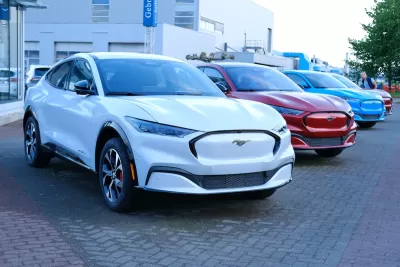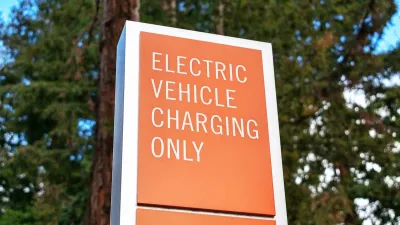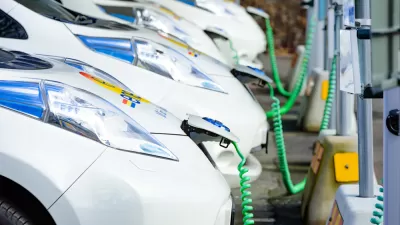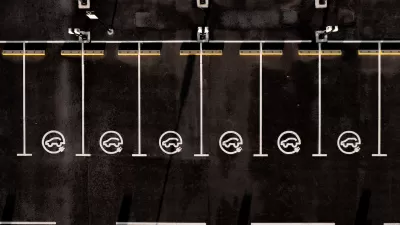Trump’s proposal to eliminate the federal electric vehicle credit could have severe repercussions for the domestic auto industry.

In a Forbes article, Andrew Leahey explains why eliminating the federal electric vehicle tax credit would be “a huge mistake” and “a major setback for the American automotive industry.”
According to Leahey, removing the tax credit — which he calls “a strategic investment in the future of American industry, innovation, and sustainability” — would put U.S. automakers further behind in the shift to electric vehicles and make them less competitive. “Without comparable support, US automakers face the challenge of both competing with lower-priced foreign EVs and covering the high upfront costs of EV research and development (R&D) —without the benefit of subsidies.”
Leahey explains that the move would only harm U.S. innovation and jobs and allow competitors to gain market share. “By eliminating the EV tax credit, the Trump administration risks pulling the rug out from under domestic EV manufacturers.” It would also limit the growth of “high-quality, future-focused jobs” in the sector.
The only automaker who could stand to benefit from the loss of the tax credit is Tesla, while legacy carmakers like Ford and small companies like Rivian would suffer, leading to fewer options for buyers and less innovation in the industry. For Leahey, “If the goal is to foster a robust American EV marketplace, eliminating the credit is not the answer.”
FULL STORY: Eliminating The Electric Vehicle Tax Credit Would Be A Huge Mistake

Planetizen Federal Action Tracker
A weekly monitor of how Trump’s orders and actions are impacting planners and planning in America.

San Francisco's School District Spent $105M To Build Affordable Housing for Teachers — And That's Just the Beginning
SFUSD joins a growing list of school districts using their land holdings to address housing affordability challenges faced by their own employees.

The Tiny, Adorable $7,000 Car Turning Japan Onto EVs
The single seat Mibot charges from a regular plug as quickly as an iPad, and is about half the price of an average EV.

Seattle's Plan for Adopting Driverless Cars
Equity, safety, accessibility and affordability are front of mind as the city prepares for robotaxis and other autonomous vehicles.

As Trump Phases Out FEMA, Is It Time to Flee the Floodplains?
With less federal funding available for disaster relief efforts, the need to relocate at-risk communities is more urgent than ever.

With Protected Lanes, 460% More People Commute by Bike
For those needing more ammo, more data proving what we already knew is here.
Urban Design for Planners 1: Software Tools
This six-course series explores essential urban design concepts using open source software and equips planners with the tools they need to participate fully in the urban design process.
Planning for Universal Design
Learn the tools for implementing Universal Design in planning regulations.
Smith Gee Studio
City of Charlotte
City of Camden Redevelopment Agency
City of Astoria
Transportation Research & Education Center (TREC) at Portland State University
US High Speed Rail Association
City of Camden Redevelopment Agency
Municipality of Princeton (NJ)





























